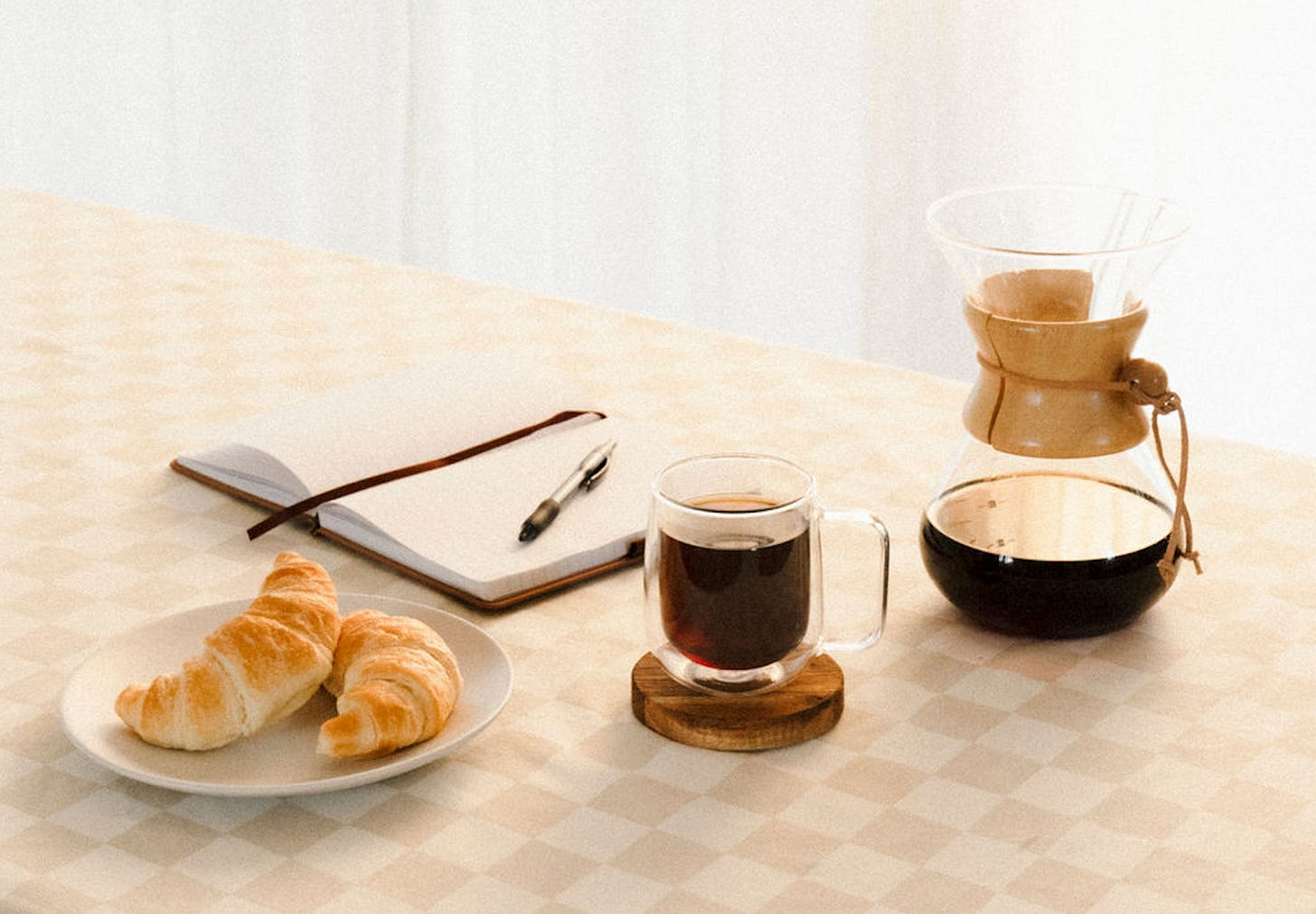Most mornings on the shore begin the same way: coffee on the porch, a soft breeze coming off the water, and a little more time to linger than usual. I read the news, scribble in my journal, and let the day ease its way into motion. Some days there are one or two meetings; some days there are none. For someone used to the constant buzz of calendars and inboxes, this slower rhythm feels almost foreign.
And if I’m honest—it’s not always comfortable.
I’ve caught myself getting anxious in the quiet, refreshing Instagram more often than I’d like (and not just because of Taylor Swift’s latest album announcement). I’m used to a pace where messages, requests, and news items fly in faster than I can process them. Without that flood, the silence feels loud. But what I’m also finding is that when the noise dies down, ideas start rushing in. The pause has been an invitation to plan, to imagine, and to finally sit with things I usually push aside.
The anchor in all of this is the book. Editing has become the work I return to every day, after whatever client projects or proposals need attention. It’s been a roller coaster: the joy of watching the table of contents finally click into place, the frustration of realizing a chapter wasn’t at the level I wanted, and the rush of figuring out how to fix it. This round of edits is taking longer than expected—partly because I’m doing more of it manually instead of leaning so heavily on AI. But that slower, more deliberate pace is teaching me as much about myself as it is about writing.
I’ve also been paying closer attention to my energy. Some mornings I’m up early and focused; other days it takes me longer to get moving. Rather than beating myself up, I’ve been trying to track the differences. What did I eat the day before? Did I push through too many hours of editing without a break? Did I move my body? I’ve even started experimenting with new classes to see what kind of exercise I might actually enjoy enough to carry into the fall. These little tests feel like part of the reset too.
When I deliberately left August wide open, the plan was to give myself space to focus on the book and reset before a busy fall. What I didn’t expect was how uncomfortable that would feel at first. I’m so used to filling every inch of the calendar, saying yes to the next thing, moving at the pace the world demands. But clearing the decks has been a gift. It’s forcing me to sit with the process—the highs, the lows, the long middle stretches.
And here’s the lesson I keep circling back to: the journey matters as much as the destination. Editing a book isn’t just about polishing chapters; it’s about learning patience, noticing what works and what doesn’t, and trusting yourself enough to keep going. The same is true for life. The slow lane can feel uncomfortable, even indulgent, when you’re used to speeding down the highway. But it’s also where you notice the scenery, where you can actually hear yourself think, and where the real lessons take root.
So, consider this your postcard from the slow lane. If you’ve been waiting for permission to slow down—even just a little—this is it. You still have time. Don’t rush to fill the space. Trust that something good might come from the quiet.



